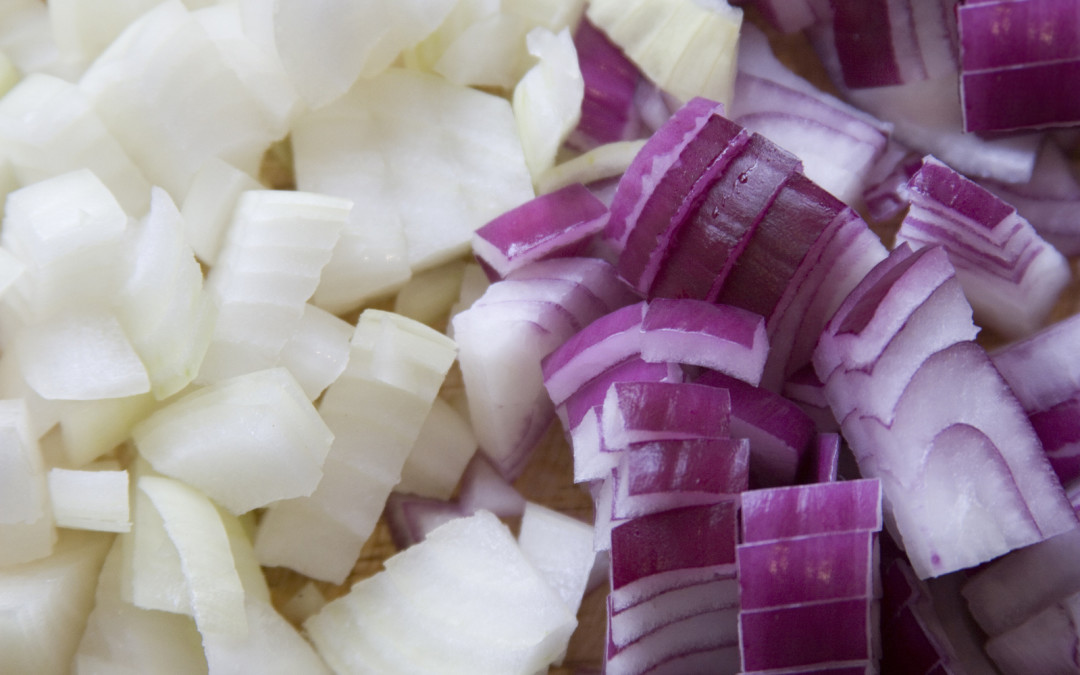It’s almost a cliche – the image of a person weeping while chopping an onion. Unfortunately, it’s also true. Well, maybe not the sobbing part, but onions do stimulate the tear glands and can make people get the sniffles when they’re prepping ingredients for their meal.
What a lot of people get wrong, though, is that they think it’s something inside of the onion that creates tears in the person doing the chopping. And that is actually incorrect. The real culprit is the chemical reaction that occurs when enzymes from the onion mix with compounds on the outside of the onion.
Why Do Onions Make You Cry?
Onions, like most other vegetables, grow in the soil in the ground. The soil has sulfuric acid, which is absorbed by the onions which creates a molecule called amino acid sulfoxides. When an onion is cut, it releases an enzyme called lychrymatory-factor synthase. This enzyme mixes with the amino acid sulfoxides and turns them into sulfenic acid – which then rearranges itself into something called syn-propanethial-S-oxide (because it’s chemically unstable).
This airborne compound comes into contact with your eyes and stimulates the tear glands causing the eyes to water and try to flush out the chemical. If you’re not up to speed on scientific terms, all of this probably sounds like a foreign language, but it’s important to understand the basics because the chemical reaction that happens during the process of chopping an onion can be quite unpleasant if you’re not used to it or not expecting it.
Luckily, because of the nature of this type of chemical reaction, you can take precautions to minimize the effects that onions cause by trying a few different things.
- You can cut the onion under a fan. This will disseminate the airborne chemicals and help move them away from gravitating towards your eyes and irritating them.
- You can refrigerate onions before cutting them. Generally, onions aren’t stored in the fridge, but throwing them into the refrigerator for a few hours beforehand can slow down the chemical reaction and make the reaction less intense.
- You can also cut the onion under running water to minimize the ability for the chemicals to become airborne. Although, cutting an onion under running water doesn’t really sound like the easiest thing to maneuver. And creating a slippery environment when you’re using a knife isn’t the greatest idea ever.
And don’t worry – if you keep at it, things will get better. Some people say that the more you cut onions, the less they will begin to affect you. So the more you cook with onions, the better off you’ll be (and the tastier your dishes will turn out).
Do you have any tips for making the process of chopping onions a little less painful? Share them with us in the comments!






What’s the verdict on cutting from a particular end of the onion or cutting this or that part off first to lessen the tears? Just a myth?
Hi Daniel! Since the offending chemicals are throughout it does not really matter. There is no magic spot with a higher concentration of the baddies that can be avoided. C’est la vie!